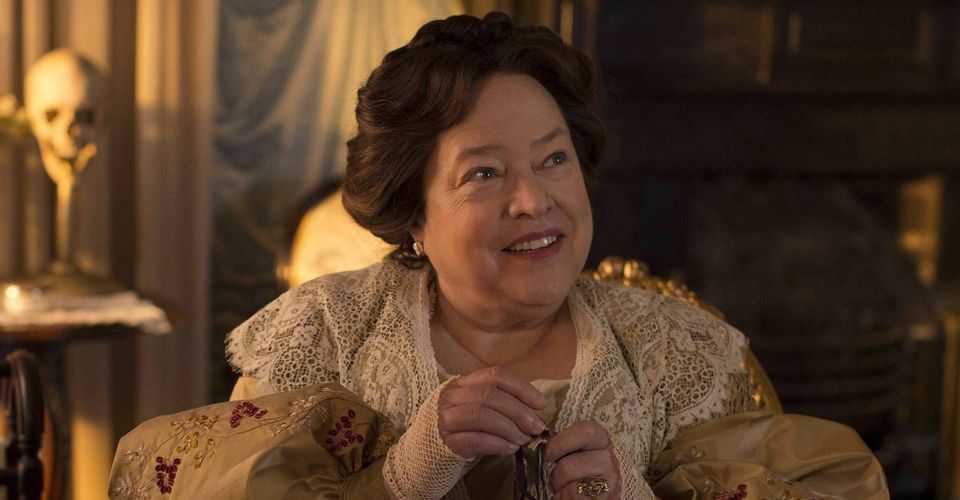American Horror Story Coven: Why Season 3 Was So Controversial

American Horror Story season 3 stirred up some controversy with the portrayal of Kathy Bates’ character. The actress starred as Madame Delphine LaLaurie in Coven, which debuted in 2013. The horror anthology series, created by Ryan Murphy and Brad Falchuk, has a tendency to push the boundaries. When it came to Coven, not all viewers were on board with the depiction of a key historical figure that was heavily involved in the season’s focus. Even so, that didn’t slow American Horror Story down. As of 2020, the show is gearing up to film American Horror Story season 10, with at least three more seasons and a spin-off on the way.
To date, Bates has portrayed six different characters throughout five different seasons of American Horror Story. Her role as Delphine in Coven marked her series debut, but she reprised the character again for season 8’s Apocalypse. Bates’ role was based on the real-life New Orleans socialite in the early 1800s who owned and tortured slaves. In the series, Delphine was forced into eternal life while being buried alive before being uncovered by the titular coven. Due to Delphine’s immortality but lack of purpose, she was forced to act as the coven’s servant.
The real Delphine in American history is remembered as a monstrous woman, known for mutilating and killing her slaves. Despite being a serial killer, her former residence, the LaLaurie Mansion, remains a popular landmark in the French Quarter. American Horror Story incorporated Delphine’s sadistic nature into the character’s portrayal. Based on her history, Queenie and the rest of the witches didn’t let her walk free. Not only was she made Queenie’s slave at the request of Fiona, the Supreme witch, but Queenie tried to teach Delphine a lesson when it came to the treatment of Black people. In time, the former socialite and the young Black witch formed a unique acquaintanceship, which rubbed some viewers the wrong way.
American Horror Story: Coven Resulted In Interesting Race Discussions

In reality, Delphine was a racist psychopath, but the series made it an effort to give the character somewhat of a redeemable arc. After Queenie forced Delphine to watch Roots, the woman was given more insight into the inequalities faced by Black people. Though Delphine didn’t give up all of her disturbing qualities, the series showcased her as a likable figure. She and Queenie cultivated a strong bond, resulting in a notion of sympathy surrounding the complicated character.
After following a redemption arc, Delphine begged for death, which Queenie eventually gave her. In the end, Delphine was forced into her personal hell—being locked in a cage in her old torture attic. That, however, didn’t stop American Horror Story viewers from questioning the depiction of Delphine in season 3. Debates regarding race arose in light of the character’s dualistic portrayal in what should have been an embodiment of pure evil. Seeing as she got joy out of tormenting and murdering slaves—which was also depicted in season 3—many felt that those redemptive qualities were inappropriate, especially in connection to one of the lone Black characters. Despite the controversy, however, the majority of fans felt that being stuck in hell was a fitting fate for Delphine.
About The Author


















